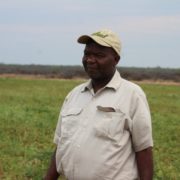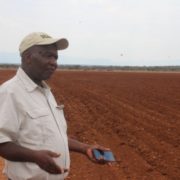What to expect from Private Equity Investors — Lionesses of Africa

by Lionesses of Africa Operations Department
We were fortunate enough recently to be invited to listen to various Lionesses as they pitched their fabulous businesses to different Private Equity firms we had introduced. We say ‘fortunate’ because firstly the pitches we heard were absolutely perfect, with the right blend of ‘story’ with detail, and secondly the various PE Firms came back with questions that not only showed their interest, but also their concerns which the Lionesses each answered clearly and with conviction.
Preparation is everything.
We always say that raising finance (just like any negotiation, see our previous article on that here) is a dance. You happen to be in the same room, but there is absolutely no guarantee that your eyes will lock across the dance floor, nor that on asking the other party will ever say yes, but once they say yes, you need to grab, keep and hold their attention.
How do we do that?
These investors have our futures in their hands. One false move and it’s all over – no wonder our nerves start to explode and our knees shake (thank goodness for Zoom – at least those can’t be seen!).
Firstly, let us correct this – one false move and it is not all over. Most investors are not there to trick you or to make you trip up. Yes they will push you, ask you tough questions, but most of that is to see if a) you really know your business inside out, b) that you really, really know your business inside out from a financial viewpoint and c) you have the conviction that raising capital at this stage of your growth is absolutely the right course of action – if you don’t 100% believe it, why should anyone else?!
Also, you have managed to get through their (virtual) front door, you have got a meeting and are now sitting (again virtually!) in front of them – there is no way these busy people will wake up one morning and say they have nothing better to do, so why not waste an hour with some unknown! They have been entrusted with loads of money from their investors, this is a huge responsibility – so they have to use it, not by simply throwing it to the wind and hope it sticks at something decent, but through careful investigation of various companies that fit their mandate and that will offer a serious opportunity to create enough return to be able within 5 or 7 years, to return cash to their fund. At which point they start the dance all over again with another potential company (although one would hope it will be with 3-5 other companies as they will have made so much out of the sale of the previous shares held in your company).
The other important fact we must remember is that it takes just as much time, investigation and effort to do a $500,000 deal as it takes to do a $5million deal…as it takes to do a $50million deal…and so on. Ok, so it is not quite true, but the differences in time are pretty minimal – so if you are sitting in front of them – there is a serious reason.
This is how it works. It is not rocket science.
So let’s get to the central point of this article – what do they need from you? We could talk about the obvious things like trust and the belief that you are someone they will enjoy working with as together you grow the company, and make no mistake this is ‘together’. It is very rare that such an investor will simply invest without at a minimum a Board seat.
Although it is this working together that is important, first on the Investor’s mind is the question of making a serious return within the confines of their mandate.
So…
Work out their mandate. If it is SDGs (the UN’s way of changing the world for the better), then make sure you have all your information ready. SDG5? (Sustainable Development Goal 5 concerns gender equality) How many women do you employ, what does your C-Suite look like, what actually is your shareholding? And so on. These are numbers that you will be expected to rattle off.
But don’t be fooled, once you have ticked that box, it’s onto the tough stuff (SDG5 should after all not be too difficult for Lionesses to prove!). The Investor is now thinking how they are going to build this company so they can get the return the investors’ demand…
Money needs to work. From the very first second that the investment hits your bank account, the clock is ticking and that is why so many of the questions to you in the first, second, third…meeting will be about how you are going to use it. You are asking for $1 million for machinery – can you take that in stages so that you can build up to your ultimate production level? If not and that $1 million turns up tomorrow at your factory gate in 12 40 foot containers, how long will it take for the entire investment to be assembled, plugged in and start cranking out your green widgets (‘GWs’)…and how long before these GWs are then sold?
Money needs to work. Your excel may say you will move from producing 1,000 GWs by hand to 70,000 through the new automation – great! But…increased production on paper is one thing – in reality, can your suppliers actually supply you with the necessary base materials from which you will produce your GWs, but now in the new increased quantities necessary to feed the larger demand required from the spanking new and gleaming machines? This is a serious question and one for which you need a serious answer. If ‘Albertina’ an old family friend (and Lioness of course – because we support each other!), is your local supplier, how strong is your conviction that she can multiply her production 70X to meet your new increased demand. Does Albertina know of your plans, have you discussed how she will ramp up her production (and believe us, she ain’t gonna invest in new machinery or automate just because you say you have a dream) – can she do it now, today?! If not, your new machines will be idle and the investor’s cash will start gathering dust…
Given that you will be buying so much extra from Albertina soon, will she be able to give you 60 days credit to assist your Cash Flow if you are currently 50% deposit and COD? How sure are you that you will be able to negotiate this? Can she cope with both the increased production and a slower payment?
Yet don’t panic and start looking for Chinese suppliers. They come with massive MOQ’s (Minimum Order Quantities) and little discussion over credit and terms, so local is still best. More and more investors are asking “Is your supply local?”. For the PE Investors if your raw materials are supplied from outside your own country (or as we know in Nigeria, sometimes even outside your own state is impossible), this is a concern given the recent wake up call the globe has had over extended supply chains – it may not be enough to put a cross against your name in the investor’s book, but they know they will have to address this at some point. Remember you are no longer bringing in 1 truck…
Taking this in small steps, we shall next week look at what excites and dismays PE Investors at the other end – where your product exits your factory, or even tech company. Why the stickiness of customers, retention rate, acquisition costs and scalability are so central, the touch points and why if these issues matter so much to Investors, they must matter to you!
Stay safe.






















